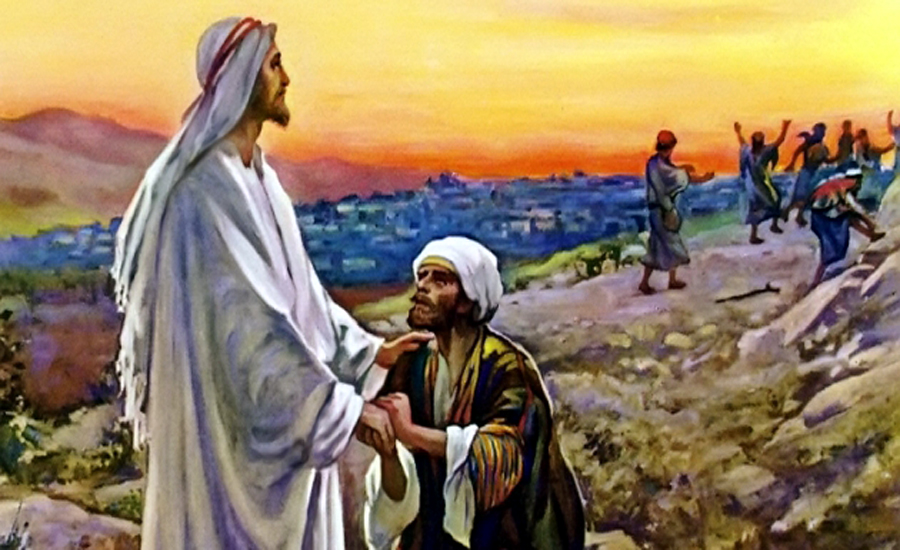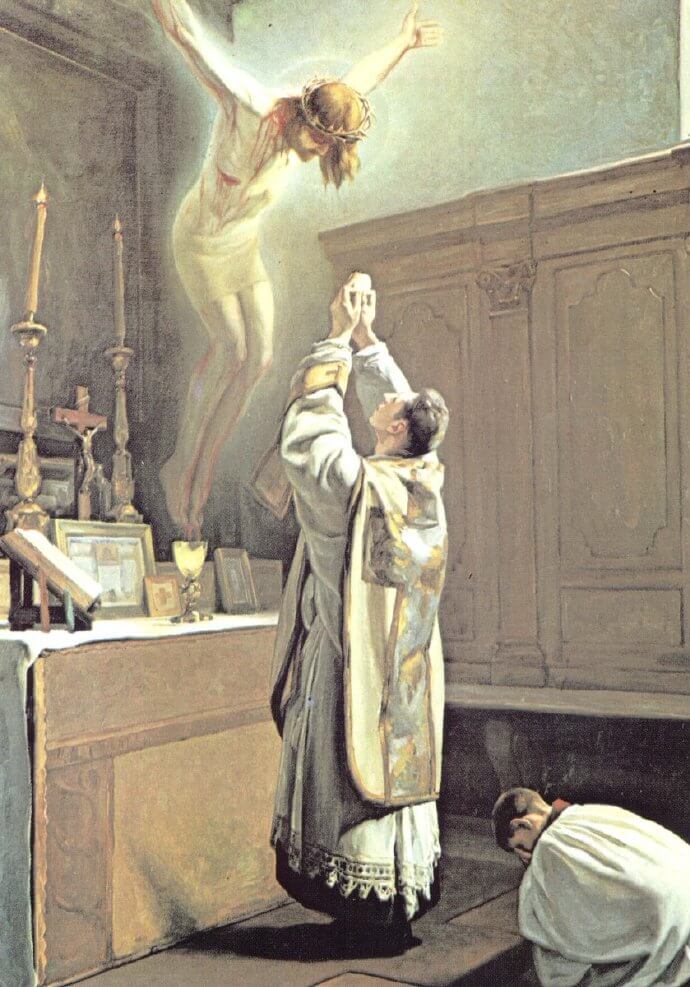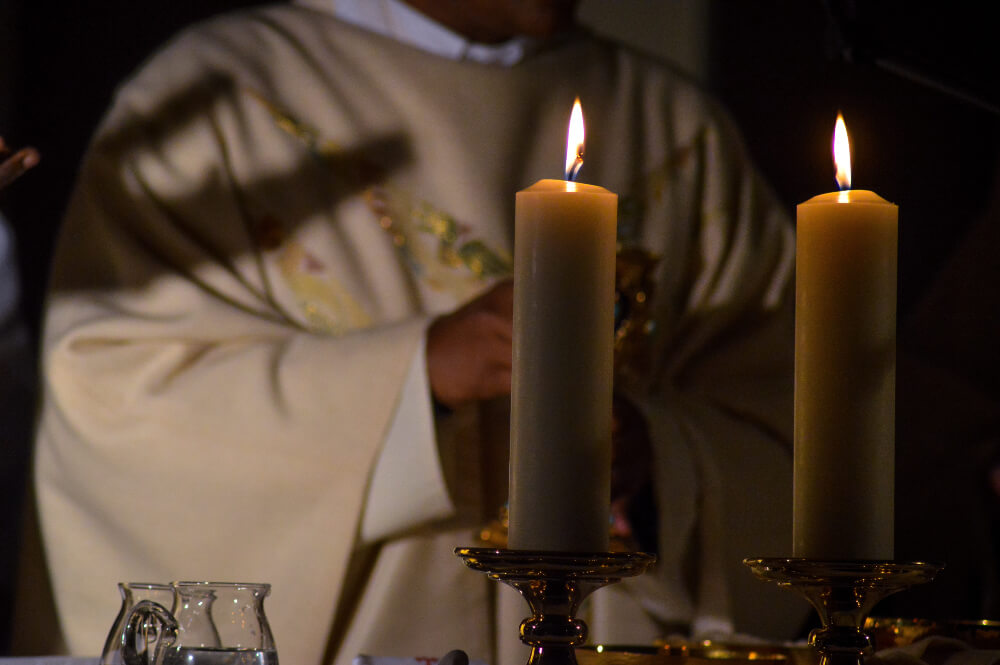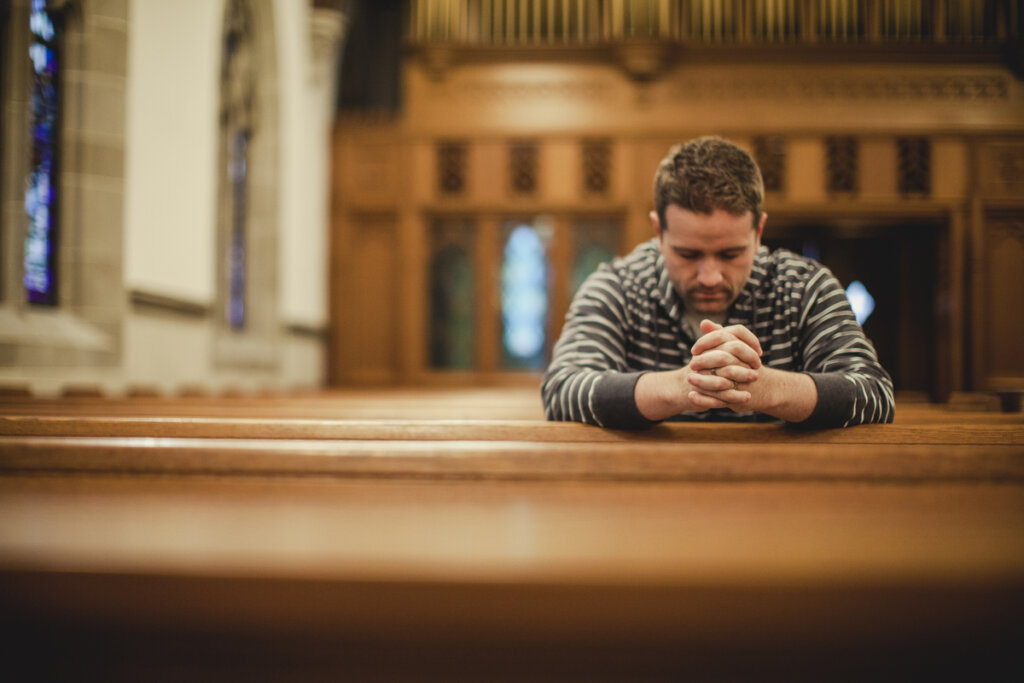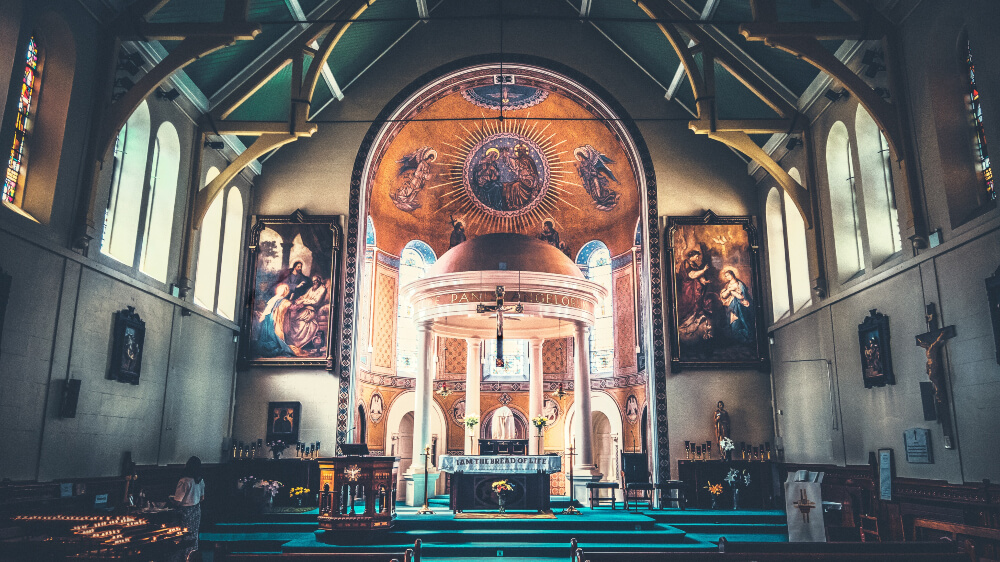
Let’s face it: fighting distraction during Mass is a difficult task for just about everyone.
After all, we’re human. We live in a fast-paced world. We have so many things bouncing around in our minds that we bring into Mass, not including the distractions we’re bombarded with after we sit in our pew.
And if we have children with us—multiply the distractions by ten.
It takes almost an heroic effort to prevent our minds from wandering away from the most important thing happening in our world in that moment: Jesus Christ coming to us in the Flesh.
But it IS possible to limit some of our distractions at Mass. All we need is a little thoughtful preparation.
Here are some simple-yet-practical tips.
1. Turn off music streaming and the car radio on the way to Mass.
One of the best ways to mentally prepare for Mass is to begin before you arrive. Start clearing out your distractions in advance by spending your drive-time to the church in silence. Turn off the car radio, silence your phone, and avoid superfluous conversation if you have family or friends in the car with you. Leave any important conversations for after Mass. Consciously make your transition from the secular to the sacred. Let that silence sink in.
2. Get to Mass at least 10 minutes early.
It’s very important to get to Mass a little early—rather than rushing in and looking for a seat while Mass is already beginning.
By clearing out your mind on the way to Mass and making room for silence, you have already taken steps to prepare yourself for prayer. Deepen that preparation by spending at least a few minutes in quiet prayer before Mass begins. Remind yourself that you are now in the presence of God and that you are about to receive Jesus in the Blessed Sacrament, and thank Him for this gift of grace. This will help to settle you down and keep you attentive.
More time is better but a few minutes is better than none at all. This may take practice, but over time you can develop the habit.
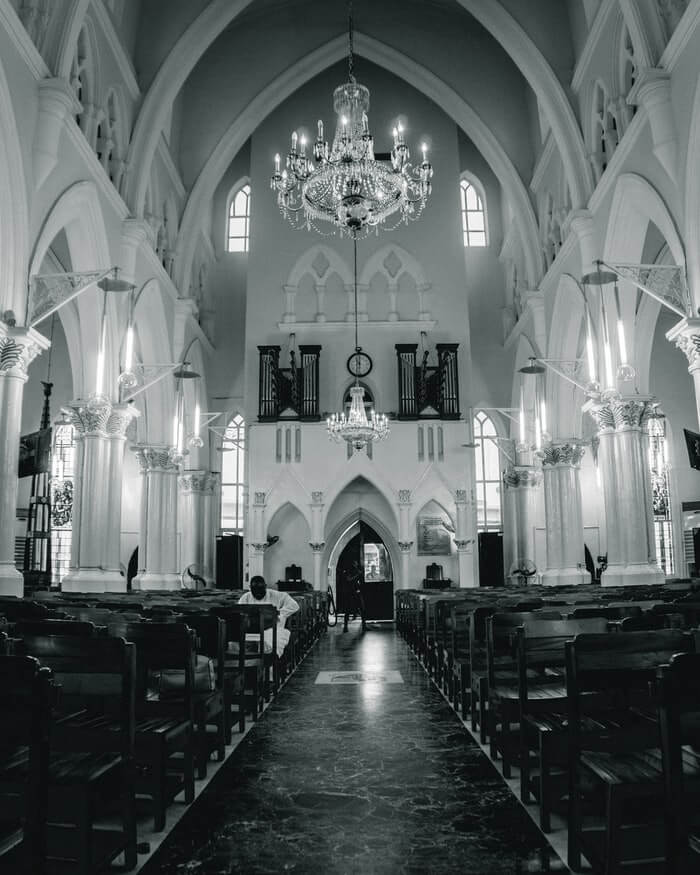
3. Sit closer to the front.
Another good reason to get to Mass a bit early is to get a free seat in one of the front pews. If all that is in front of you is the altar, it is much easier to stay focused on what is happening there. You will also be less distracted by what is happening in the pews around you.
4. Keep your hands folded in prayer.
Posture is very important to prayer. Let your body remind you of what your heart and mind should be doing by keeping your hands reverently folded.
There is a reason why we teach this to kids! Try it, and you’ll probably find that it helps lessen your distractions.
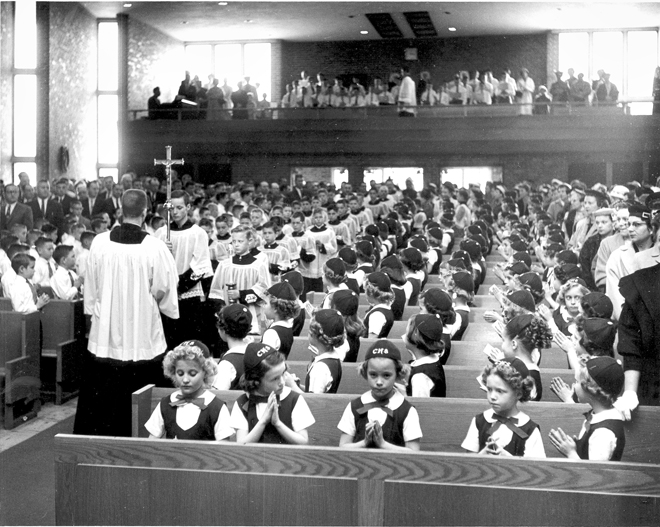
5. Fully participate in the Mass.
Mass is not an event for spectators. Participate! Say all the prayers and sing all the songs. If it helps, follow along with each part of the Mass using a Missal.
Where does this Sunday fall in the liturgical calendar? How is the Old Testament reading connected to the New Testament reading? How does the Responsorial Psalm connect both?
If you are engaging in all of this, it is a rewarding occupation for the mind, and God will undoubtedly assist you to better grasp and understand His sacred truths.
6. Bring back those wandering thoughts.
Mass is the place where heaven meets earth. Each time you are distracted, bring your mind back to where you are, even if you have to do this 100 times from start to finish. As instructed by St. Francis de Sales:
“If the heart wanders or is distracted, bring it back to the point quite gently and replace it tenderly in its Master’s presence. And even if you did nothing during the whole of your hour but bring your heart back and place it again in Our Lord’s presence, though it went away every time you brought it back, your hour would be very well employed.”
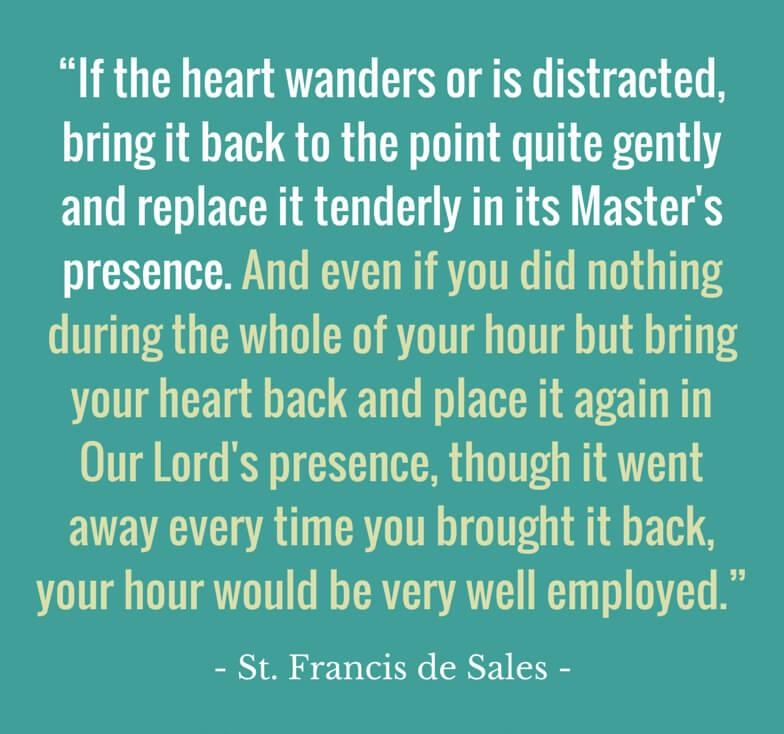
7. Intentionally add your intentions and sacrifices to the prayers of the Mass.
Two things that you can bring with you to every Mass are the special intentions that you’re praying for, and the personal sacrifices that you’re uniting to Christ’s one great sacrifice. Both come together as you “offer it up” at Mass. At the point before the Consecration when the priest says, “Pray brethren, that my sacrifice AND YOURS may be acceptable to God, the almighty Father,” consciously think of what these things are for you.
8. Memorize the Anima Christi Prayer.
The Anima Christi is a beautiful Communion prayer dating back to the Middle Ages. Pray these words very slowly as a meditation to keep your mind focused on what Christ is doing in your soul at your reception of every Holy Communion. Do this enough times and you’ll have it memorized.
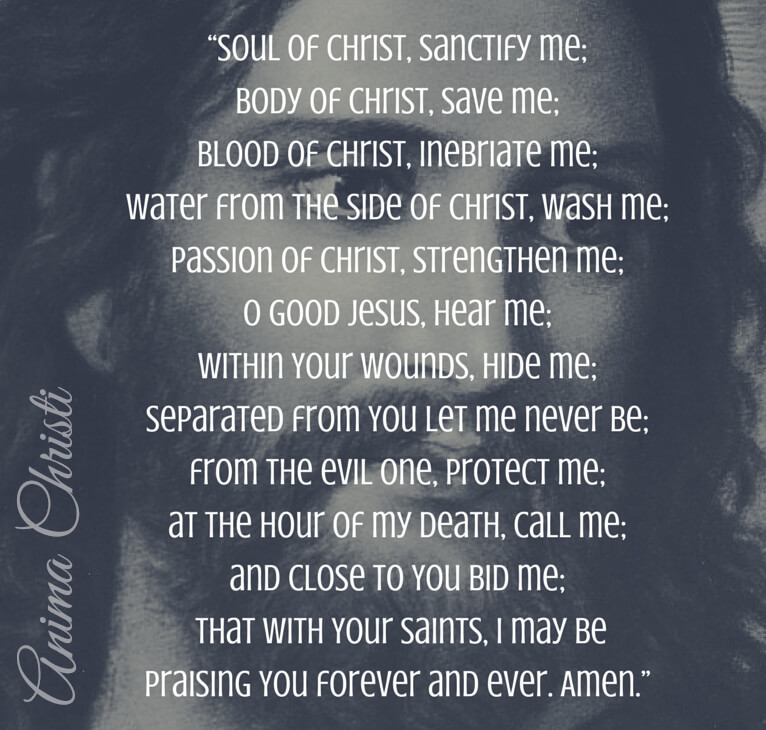
9. Ask for help—from your guardian angel!
If you want help overcoming distractions away at Mass, just ask! Your guardian angel is with you to help you with things like this. Humbly ask your angel—who is adoring Christ along with you—to assist you in staying attentive and praying well.
What do you think of this list? If you have other tips for curbing distractions during Mass, please share in the comments below!



